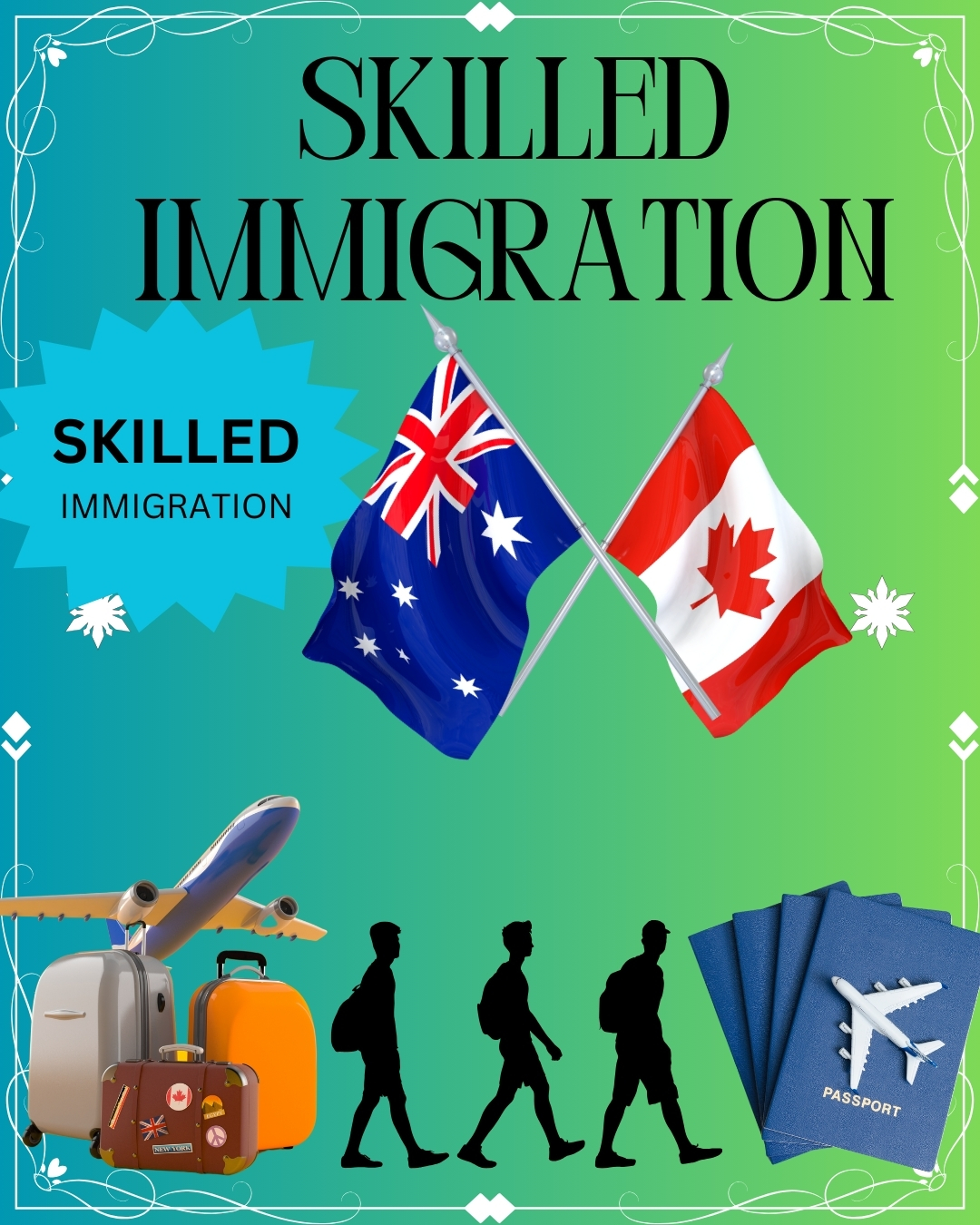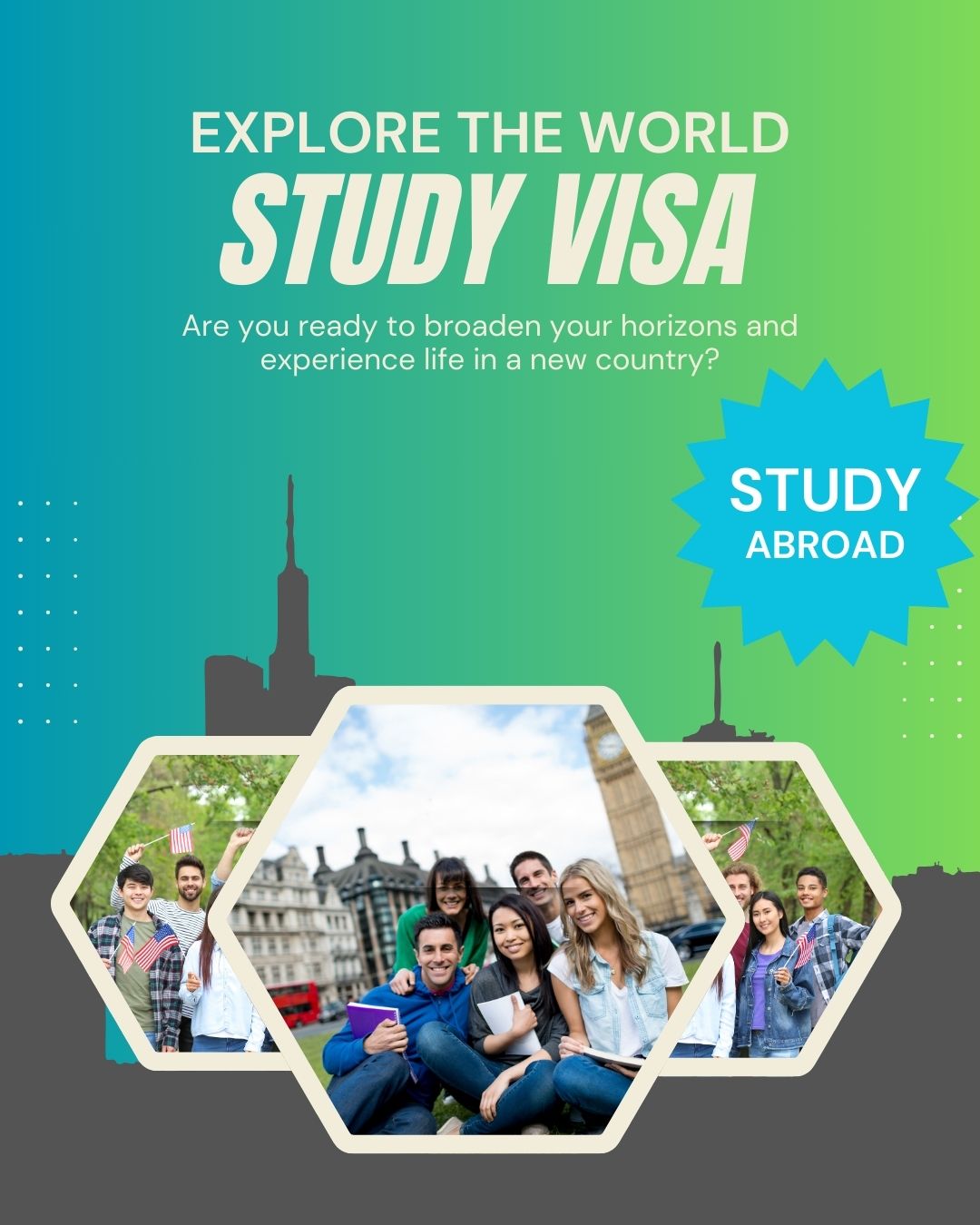

Introduction
Skilled immigration refers to the process by which individuals with specialized skills, education, or work experience migrate from one country to another. Countries often establish skilled immigration programs to attract highly qualified professionals who can contribute to their economic growth, innovation, and competitiveness. These programs are structured to meet labor market demands by filling gaps in key sectors such as technology, healthcare, engineering, and finance.
Introduction
A study visa is a legal document or endorsement issued by a country to allow foreign nationals to enter, stay, and study at accredited educational institutions within its borders. Study visas vary by country in terms of eligibility criteria, application processes, and duration. These visas are designed to attract international students, enrich educational environments, and foster global knowledge exchange.
Key Feature of Skilled Immigration
Eligibility Criteria:
Skilled immigration programs typically assess candidates based on factors like:
- Educational qualifications
- Relevant work experience
- Language proficiency (often in English or the local language)
- Age (younger applicants may receive more points)
- Adaptability (previous work or study experience in the destination country)
Points-Based Systems:
Many countries use a points-based system to evaluate and rank skilled immigrants. Applicants are awarded points for each eligibility criterion, and only those meeting a certain threshold are eligible for immigration.
Occupation Lists:
To guide applicants, countries maintain lists of in-demand occupations. These lists are updated regularly based on labor market needs.
Temporary and Permanent Residency:
- Skilled immigration pathways may lead to either:
- Temporary work visas (with an option to transition to permanent residency)
Key Feature of Study Visa
Eligibility Criteria:
To qualify for a study visa, applicants typically need:
- Admission to a recognized educational institution
- Proof of financial support for tuition fees and living expenses
- Language proficiency (such as IELTS, TOEFL, or equivalent exams for English-speaking countries)
- A valid passport
Application Process:
The process usually involves:
- Obtaining an acceptance letter from the educational institution
- Gathering necessary documents, including financial statements, health certificates, and academic records
- Filling out the visa application form online or in-person
Duration of Stay:
Study visas are typically issued for the duration of the academic program, plus an additional grace period to allow for preparation to leave the country or seek further opportunities.
Benefits of Skilled Immigration
- Economic Growth: Skilled immigrants contribute to economic development by filling critical labor shortages and driving innovation.
- Knowledge Transfer: Highly skilled professionals bring valuable expertise and global perspectives.
- Demographic Balance: Skilled immigration helps address aging populations in many developed countries.
- Better Job Opportunities: Immigrants often gain access to higher-paying roles and advanced career prospects.
- Quality of Life: Many skilled immigrants experience improved living standards, healthcare, and education systems for cultural enrichment and personal growth.
Benefits of a Study Visa
- Access to Quality Education:
International students can study at globally renowned institutions, gaining exposure to high-quality education. - Cultural Exposure:
Studying abroad fosters personal growth and cultural exchange, broadening students’ perspectives. - Career Advancement:
Graduates from reputed foreign institutions often gain a competitive edge in the global job market.
Challenges of Skilled Immigration
Integration Issues:
Language barriers, cultural differences, and lack of local experience may hinder smooth integration.
Credential Recognition:
Skilled immigrants often face difficulties in getting their qualifications and certifications recognized.
Immigration Policy Changes:
Changes in government policies or stricter visa regulations may disrupt immigration processes.
Brain Drain:
Source countries may suffer economic and innovation losses due to the emigration of highly skilled workers.
Challenges of Study Visa
High Costs:
Tuition fees and living expenses in foreign countries can be expensive.
Visa Rejections:
Incomplete applications, insufficient financial proof, or concerns about return intentions may lead to rejections.
Cultural and Language Barriers:
Students may face difficulties adjusting to new environments and languages.
Limited Work Rights:
Study visa work restrictions may affect students’ ability to support themselves financially.
Examples of Skilled Immigration Programs
Canada:
- Express Entry System (Federal Skilled Worker Program)
- Provincial Nominee Programs (PNPs)
Australia:
- Skilled Independent Visa (subclass 189)
- Skilled Nominated Visa (subclass 190)
United States:
- H-1B Visa (for specialized occupations)
- Employment-Based Green Cards (EB-2, EB-3)
United Kingdom:
- Skilled Worker Visa
- Global Talent Visa
Germany:
- EU Blue Card
- Skilled Workers Immigration Act
Examples of Study Visa
United States (F-1 Visa):
- Allows international students to pursue academic studies in U.S. colleges and universities.
- Optional Practical Training (OPT) available after graduation.
Canada (Study Permit):
- Allows international students to study at designated learning institutions (DLIs).
- Post-Graduation Work Permit Program (PGWPP) available.
United Kingdom (Tier 4 Student Visa):
- Allows students to enroll in recognized courses at UK educational institutions.
- Graduate Route provides work opportunities post-study.
Australia (Subclass 500):
- Permits study at registered Australian institutions.
- Post-study work visa options available.
Germany (Student Visa or Residence Permit):
- Enables students to attend German universities, including tuition-free public universities.
- Opportunities to work part-time during studies.
